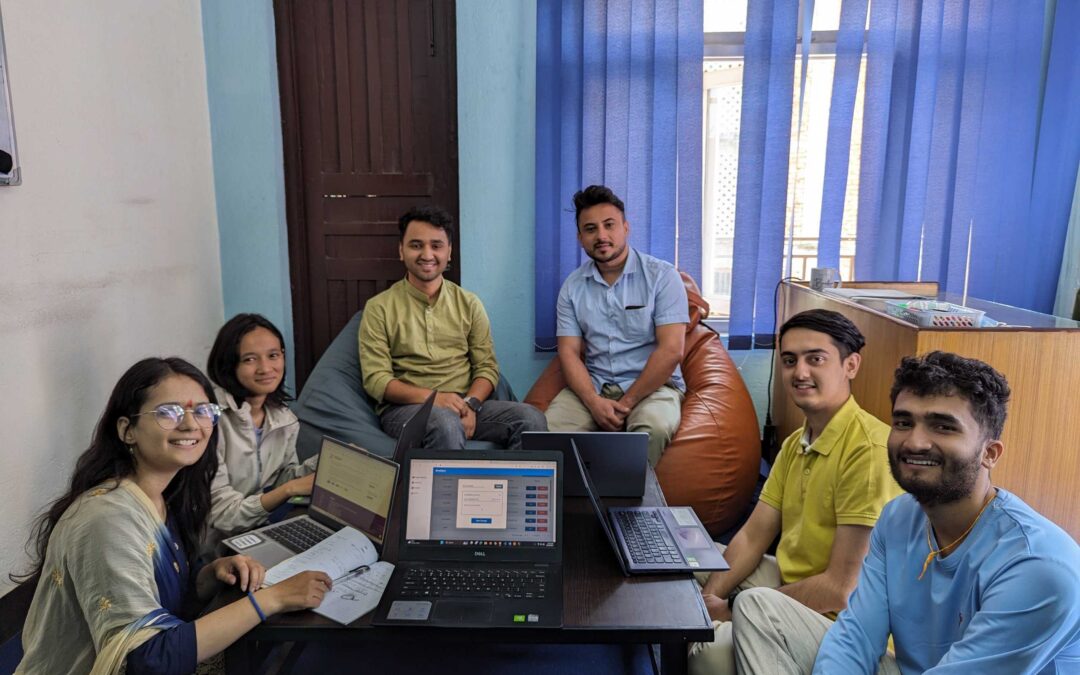This sprint, we were eagerly looking forward to finally meet our community partner. Due to various reasons, we hadn’t been able to connect with them in the past. Our week kicked off with a long-awaited meeting with the Chaurajhari Hospital Administrator. During this meeting, we were truly delighted to discover just how meaningful our project is for the people of Rukum and the surrounding districts. The hospital administrator took us on a walkthrough of the hospital and the surrounding community. He shared some poignant insights with us. Rukum had suffered greatly during the civil war that our country went through a few decades back. The scars of that conflict run deep, and almost every person in Rukum carries some form of physical or emotional wound from those times. Even in the face of such adversity, our community partner, Chaurajhari Hospital, remained dedicated to serving the people and upholding the principles of humanity. Witnessing the unwavering commitment of our community partner only deepened our respect and admiration for them. Moreover, we were introduced to another harsh reality of the Rukum community. It is a rural and economically disadvantaged area where superstitions, illiteracy, lack of awareness, and harmful practices are prevalent. Early marriages are common, leading to early pregnancies and complicated deliveries.
The community also clings to superstitious beliefs, and their understanding of public health is limited. They often mistrust modern medical practices, and this distrust even extends to blood donation. Many residents believe that donating blood is life-threatening, further complicating the situation. It is challenging to maintain a database of potential blood donors. Because of this shortage of blood supply and mechanism to trace willing donors, the hospital sometimes has to transfer patients elsewhere for surgeries. Unfortunately, Rukum frequently makes headlines for this dire situation. Furthermore, we were deeply moved by a heart-wrenching revelation that in Rukum, a few decades ago, around 400 infants would tragically be buried annually on a riverbank. These infants lost their lives due to a lack of public health awareness, sometimes because mothers couldn’t access blood in time to save them, and occasionally due to severe postpartum bleeding. This distressing reality underscored the urgent need for our project and its potential to make a significant impact in this community. After gaining a deeper understanding of the community’s needs from the Hospital Administrator, we recognized the importance of making slight adjustments to our project requirements. We realized that it was essential to focus on addressing the challenges surrounding pregnancy.
As a result, we have customized our solution to specifically benefit pregnant women and cater to their unique needs. Despite these sobering challenges, we found inspiration in the knowledge that our project would make a significant impact on the community. Throughout the remainder of the sprint, we were determined and highly motivated to work on the project, focusing on developing APIs and frontend elements. The newfound understanding of the value and significance of our work for the people and the community fueled our determination. We are now thoroughly satisfied with the purpose of our project and the positive change it will bring to the community.

